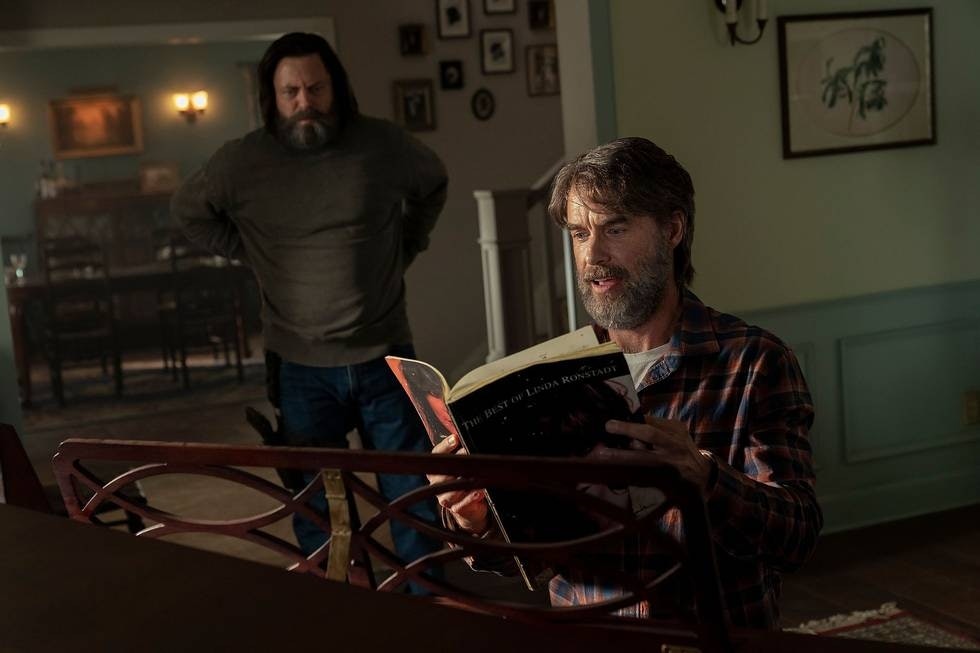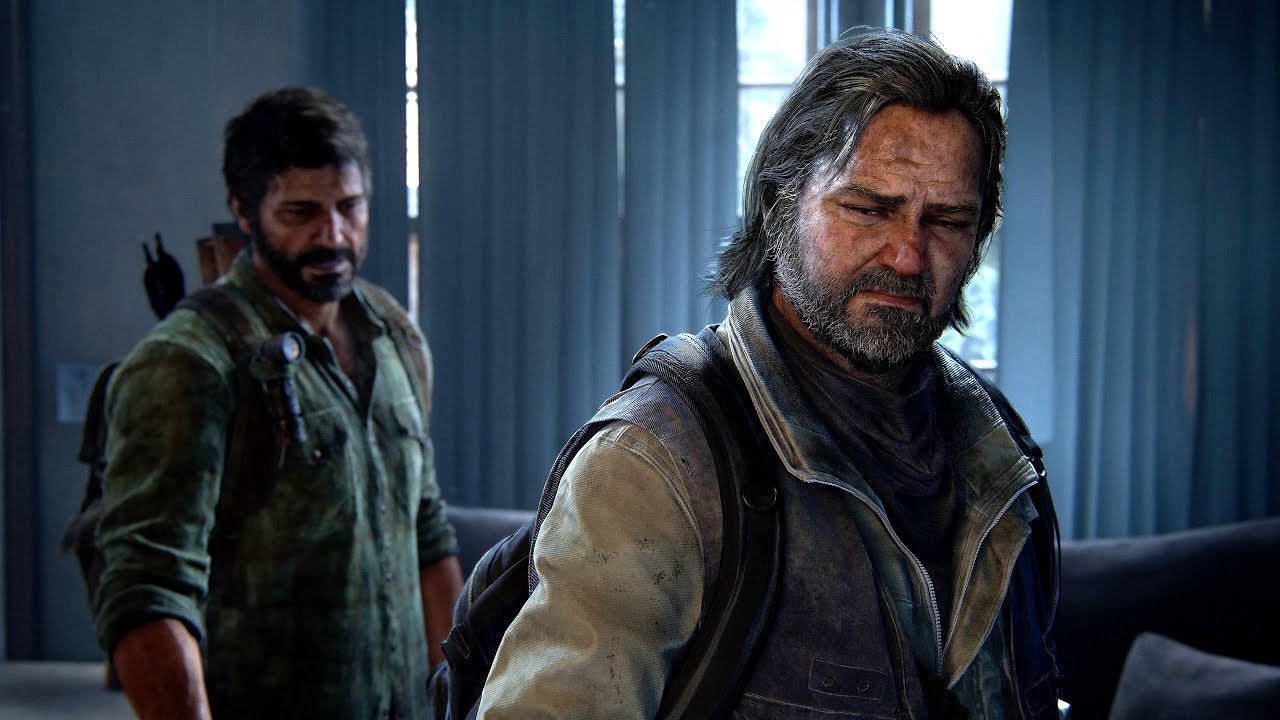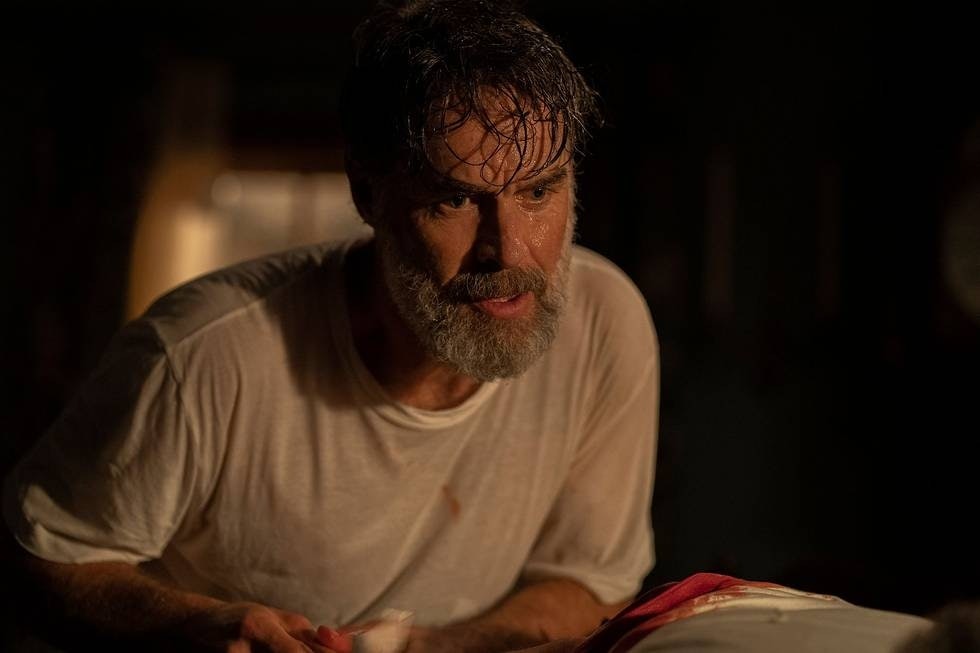
When The Last of Us review embargo dropped, it seemed like every reviewer mentioned Episode 3 as a standout, and now it’s easy to see why. After two episodes establishing Joel and Ellie and showing just what’s at stake for them, Episode 3 takes a sharp left turn and focuses on one of the few people on Earth who was actually vindicated by Outbreak Day: survivalist Bill (Nick Offerman).
Over the course of 80 minutes, we see Bill as he emerges after the evacuation of his town of Lincoln, Massachusetts, and rebuilds the world by himself. He loots Home Depot, builds booby traps, and generally lives his best Ron Swanson life. But then another person enters his life and single-handedly fixes the strangest character choice in the entire franchise.
We’re introduced to Frank (Murray Bartlett) as he convinces Bill to let him into the fenced-off town for lunch. The two hit it off, and Frank never leaves. They stay together through fights, Infected infestations, gunshot wounds, and picnics with Tess and Joel. It isn’t until 2023 that Frank, now dying of cancer, requests that Bill put painkillers in his wine at dinner so he can die on his own terms. Bill goes one step further and doses his own wine too, saying, “This isn't the tragic suicide at the end of the play. I'm satisfied.”
In the original game, players do guide Ellie to Bill, but they don’t find a letter explaining that he and his now-husband, Frank, are dead. In fact, they actually meet Bill, who helps them defend themselves against a swarm of Infected. Together, they venture out to find a truck with a battery, where Bill finds the hanged body of his partner Frank, who left in a huff.

The game never confirms that Bill and Frank were romantic partners. It came out in 2013, when homosexual characters — especially in video games — were less common and less accepted. But even if they were romantically involved, as many fans assumed, the note Frank leaves Bill taints any sort of love story that could have been told between them.
“Trying to leave this town will kill me. Still better than spending another day with you,” he writes. When Joel gives the note to Bill, he responds with an expletive-filled remark. It’s clear these two didn’t leave things on good terms.

The TV show completely changes that. Bill and Frank aren’t perfect; we see them argue almost to the level we see in the note. But we also see the good moments the game characters presumedly had — growing strawberries, painting, throwing picnics, refurbishing boutiques — alongside the hard times. Relationships are hard, but if they’re right, the good times outweigh the bad.
The HBO series actually shows us the entirety of their relationship, which isn’t just good LGBT representation, but a good representation of any couple. Then, to prove that the story is aware of the flaws of its predecessor, Bill and Frank’s storyline ends with yet another postmortem note. But this time, it’s from Bill to Joel.
“I used to hate the world and was happy when everyone died,” he writes. “But I was wrong. Because there was one person worth saving.” Frank was previously seen as a victim of Bill’s sole focus on survival, a cynical note in an already cynical game. Now, he can be seen as Bill’s reason for surviving at all.
The Last of Us Episode 3 is now streaming on HBO Max.







